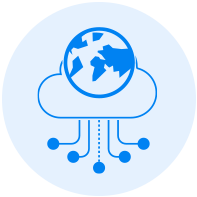
5 Steps to Audit Utility Data Quality
Honor Donnie | June 10, 2022 | Data & Technology
When it comes to utility data there are many different ways to use it. Whether your company is in the process of ESG reporting or energy management–quality data is a necessity for developing effective strategies and reliable reports. That’s why it’s very important to understand the costs of working with bad data. Regardless of your goals, without quality utility data, you won’t have the information you really need.
Cost of Bad Data
As your organization works to solidify a reporting process, accuracy is important. In order to ensure reliability, reporting the full spectrum of energy data received correctly the first time can eliminate errors and information oversight. Leaving gaps in data, missing points, or reporting inaccurate data can create problems down the line. This is a possibility both in the short and long term. Although data management can seem daunting, bad data is costly. If your organization actively makes decisions with data, you cannot afford to have unreliable data. With bad data, comes bad decisions, and those are avoidable with the right tools.
WEBINAR: 5 Ways to Ensure Data Quality for Sustainability Reporting from Urjanet
When ensuring utility data quality there are 5 steps to consider that can help instill the best practices:
- Take humans out of the equation
The first step to understanding quality data is to define it! Is your data trustworthy and accurate? What measures are being taken to ensure quality? Is there external validation of the data? Who or what is your data process dependent on? By analyzing these basic questions you should come to a common understanding: taking humans out of the equation will help to set a standard for accuracy. The truth is that data entry by humans is unreliable, inaccurate, and often prone to errors. With an automated collection process the quality of your data will be more reliable.
- Have an auditing framework in place
Once you have accurate data you’ll need to audit it properly. This means being proactive in developing your framework. Look for things like new meters, new tariffs, new charges, and spikes in consumption. By establishing an automated data check process, your business can simplify the auditing framework
- Utilize data analysis tools
In addition to audit tools, analysis tools will catch anomalies in the data set. Implementing these data analysis tools help to further support accuracy and flag potential problems. The incorporation of an additional set of tools into your process helps the business stay proactive.
- Gather data monthly rather than annually
Accuracy also requires consistency. When data is gathered on a monthly basis it’s easier to find and fix discrepancies. The monthly analysis of your data provides a consistent context of your business. Additionally, a regular analysis is one of the best ways to ensure accuracy. Through the constant review of information, your business is able to not only mitigate potential issues but also have a reliable archive of data.
- Make sure your data set is complete
It is vital to maintain a complete data set. This helps to reduce gaps; which will avoid data disparities or overlaps that can be costly in the long run if not detected early. With humans removed from the reporting equation there is room to leverage automation. These algorithms will automate your data check process and provide the support needed in order to ensure reliability.
Read Our Whitepaper >>> ESG 101: A Focus on Environmental Reporting
Utility data is our core competency
Data quality is essential for good business decisions. This is why we recommend taking data quality very seriously. The best way to ensure quality and accuracy is through automation, auditing, and analysis. With our platform your business will be able to audit utility data quality in a secure and efficient manner. Are you ready to get started your? Speak with one of our data experts today to get started.
YOU MIGHT ALSO BE INTERESTED IN:
- ESG Data Management: Fueling Reporting with the Right Data
- How do we tackle the E in ESG?
- How to Begin Your Company’s ESG Reporting Journey
If you like what you’re reading, why not subscribe?
About Honor Donnie
Honor Donnie is a Marketing Coordinator at Urjanet, with a passion for content creation. When she’s not at Urjanet, she can be found reading, cooking, and listening to great music.
You May Also Like
Overcome Customer Onboarding Challenges in the Financial Sector
Honor Donnie | December 16, 2021 | Data & Technology | ID Verification
